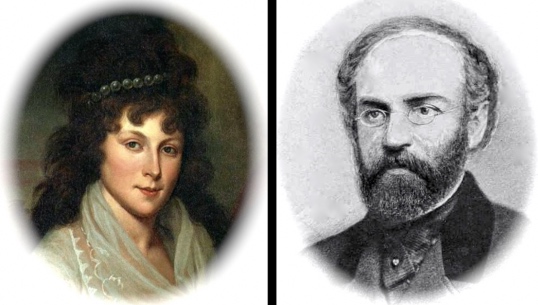1783 words
TRT: 9:48 Video link https://youtu.be/MBOZycGrS98
Images in Flickr: 57 https://www.flickr.com/photos/jimsurkamp/albums/72157651149391278
With support from American Public University System (apus.edu). (The sentiments in this production do not in any way reflect modern-day policies of APUS).

.


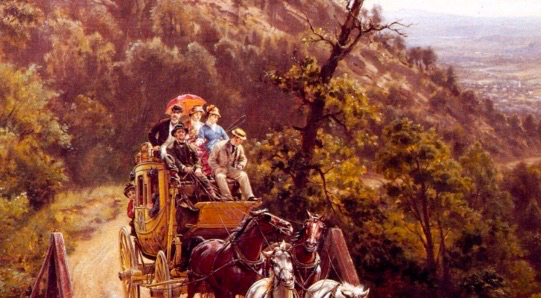
The wheat harvest was gathered, and the heats of midsummer were beginning to drive all who had means and leisure to congregate about famous springs and cool places in the mountains.
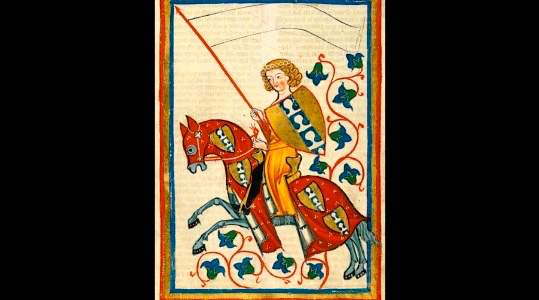
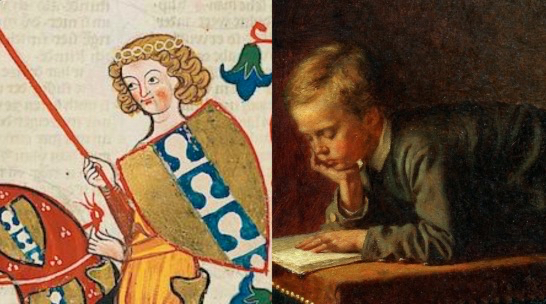
It was really the discovery of printing that killed chivalry, soul and body. Then the power that comes of knowledge passed over to the unarmed people. The unlettered prince could no longer delegate the writing and reading of his letters to a hired valet.

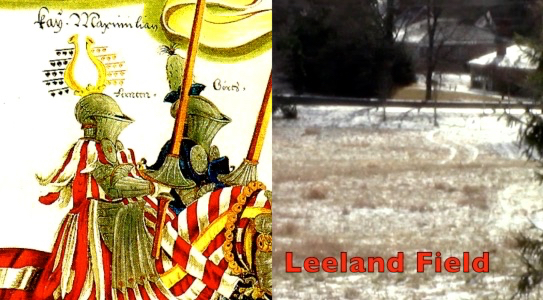
Tuesday August 4th, 1857, Shepherdstown, Va.
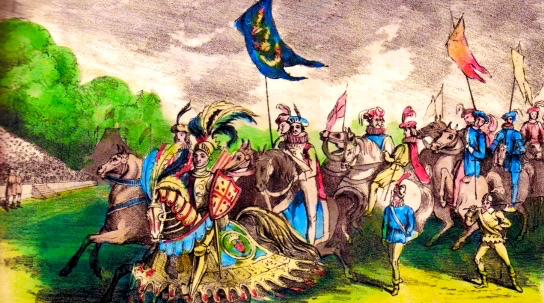
The Day of the Horses – The Ring Tournament in Leeland Field.
On Tuesday last, a large assemblage of people, consisting of the youth and beauty of Jefferson, and Berkeley counties, Va., and Washington County, Md. collected at Leeland, near this place to witness the exciting scenes of a Tournament that came off there. – (1).
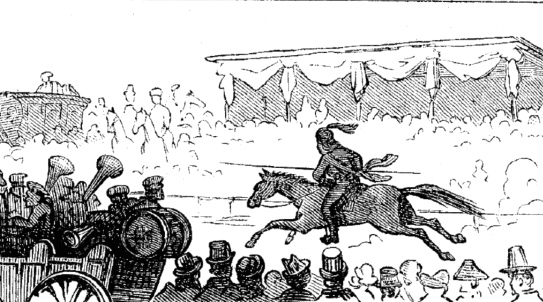
The tournament lists were staked out on a long level of evenly mowed turf some four hundred yards in length, guarded on either side by a railing of rope, and spanned near the further extremity by an arch of evergreen boughs, from the centre of which the ring was suspended. Outside of these lines were double rows of light wagons and carriages, regularly packed and filled with eager spectators.
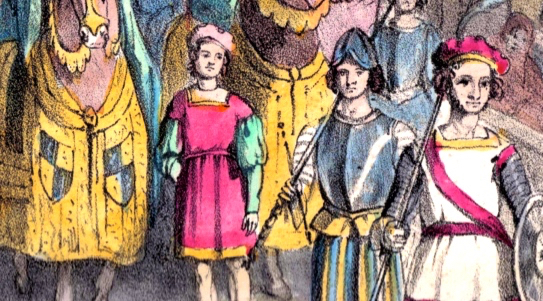
Near the centre were several extensive pavilions, made of wagon covers, bolting-cloths, or more agreeably thatched with fresh green boughs, shading rows of rough plank seats already occupied by the elite of the company – rustic dames whose silks and ribbons, or maidens whose delicate cheeks, shunned the scorching sunshine.
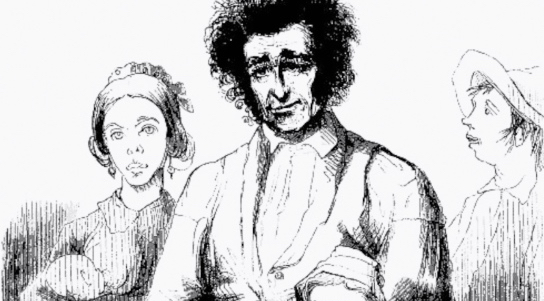
Between this dress circle and the rope harrier the space was crowded with the undistinguished multitude of leather-faced mountaineers, squatting or lounging upon the grass, of lint-headed, bare-legged
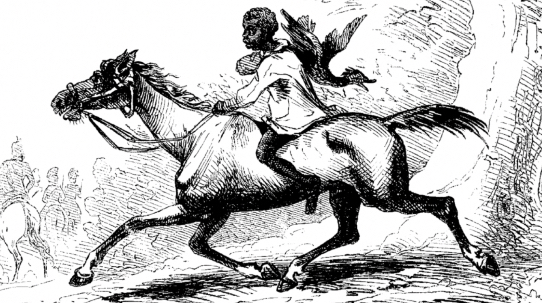
children, and negroes full of eager hilarity and vociferous expectation. Behind all, barns, stables, sheds, fodder-racks, fence corners, and umbrageous thickets afforded shelter for the four-footed chivalry who were to play the leading part in the amusements of the day. – (2)
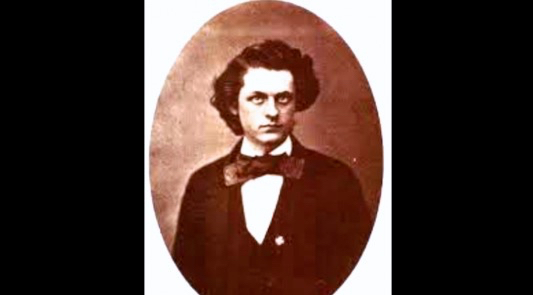
Prior to the tilting the Gallant Knights were addressed by the President, Mr. Henry K. Douglas, of Ferry Hill, Md. in the following neat and appropriate speech. His delivery was bold, clear and impressive for one so young:
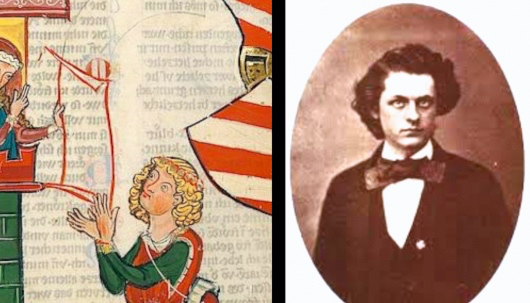
Gallant Knights – You have assembled here today not for the purpose of provoking Iron Mars, but that you may exhibit your devotion to the fair daughters of Eve, and given them assurances that as you now make known your consciousness of their charms, so you will ever consider it your greatest duty and supreme pleasure, to protest those charms though death alone be your reward.
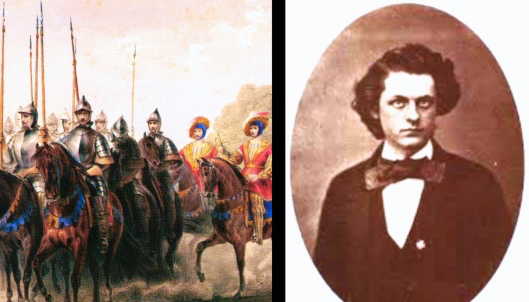
You need no allusion to Knights of ancient days to increase your valor, nor stories of bleeding champions and fainting ladies to arouse your gallantry. You possess that generous spirit which would welcome the sword as readily as the harmless lance, did the cause of love require it.
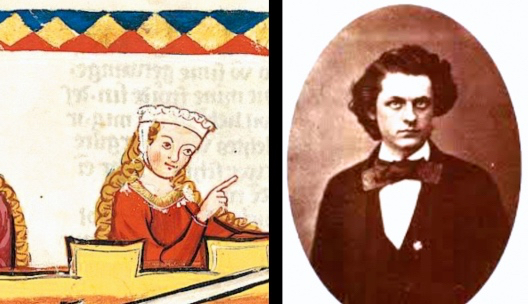
But even if you did not, you have before you a picture of loveliness that could change the hermit to a sprightly courtier, make the tottering sire forget his hoary hairs, and straightway as a boy again. And the merry hearts of these fair ladies are beating in unison with yours, for as your fleet steeds pursue their swift course, and you hasten towards the fatal ring, they wait an anxious sympathizing expectation and hail your success with a smile or announce your failure with a sigh. Knowing that you feel doubly inspired by the beautiful scene before you, and bearing on your banner the motto: “Cupid and the Ladies,” I bid your charge and may the God of Love grant you success and your reward the smiles of the fair with crowns of rosy garlands. – (3)
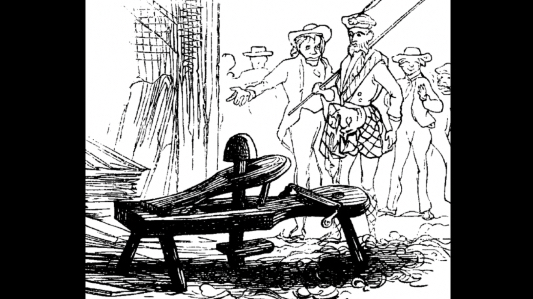
The hour had come, the trumpet call had sounded. The enlisted knights were already mustered behind the barn. The chief marshal of the tournament a handsome fellow, superbly mounted, with peaked beard and flowing locks cultivated expressly for the role, bobbing with plumes and fluttering with rosettes, with an air of egregious importance, was galloping to and fro, posting his guards, heralds, and pursuivants at their proper stations.

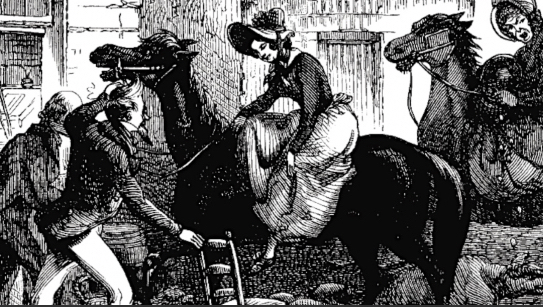
The ladies were lightly and gracefully dismounted, and their horses led away. Choice seats had been reserved in the green pavilion, and a sweep of the chiefs broadsword removed the rope barriers from their path.
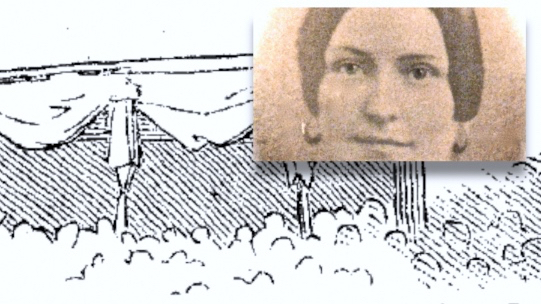
As (one lady) ascended the steps all the men and boys within range jostled each other and stretched their necks to catch a glimpse, while all the rosy cheeks turned pale with curious envy. The music ceased, the vocal murmurs died away. The orator and knights remounted to join the muster behind the barn.
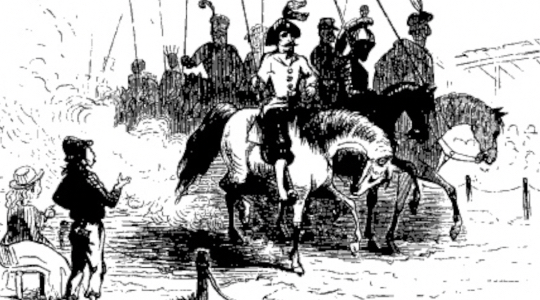
Again the signal bugle was blown, and a troop of horsemen burst into the lists at full gallop. They were received with a storm of drums, trumpets, brass-bands, cheers, and waving of handkerchiefs and banners. Charging through the whole length of the course, they executed some pretty military maneuvers, and wheeling, galloped back to their starting-place. The parade resembled the grand entree at a circus, or, perhaps, a fancy ball on horseback. The knights were attired variously, according to their whims and pretensions, each wearing some token – a glove, a handkerchief, a ribbon, or bouquet from the lady in whose honor he proposed to risk his neck and exhibit his skill. Two or three were masked, and wore no favors by which they might be distinguished unknown, perhaps, except to their lady-loves, with whom there had been a secret understanding. At length all the preliminary ceremonies were concluded, and the game commenced. Then the judges were posted beside the arch where the ring hung suspended.
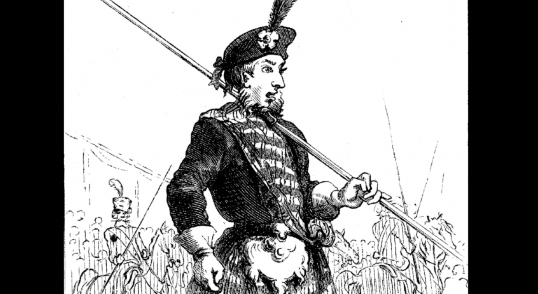
Heralds to proclaim the count, grooms and attendants to replace the ring when taken off and to assist any cavalier in case of an accident. Others along the line kept back the eager and excited crowd with drawn sabres, while at the lower end the chief marshal called a roll of the knights, who took their places in line in order as they were named. – (4).
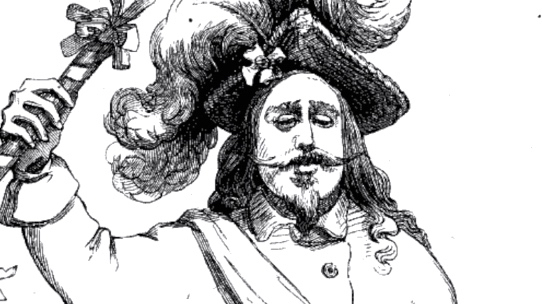
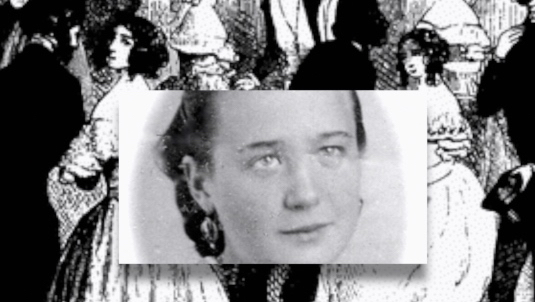
We never before saw such an array of female beauty and chivalry, as was there assembled:
The following are the names of the officers and Knights:
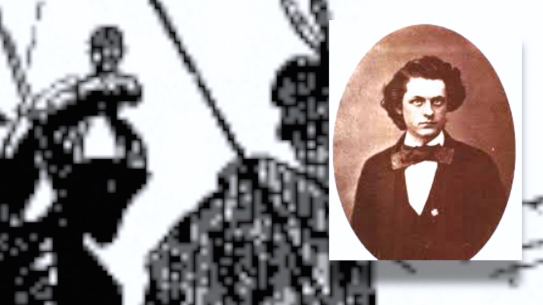
President – Henry K. Douglas
Heralds – James L. Towner, Samuel Moore
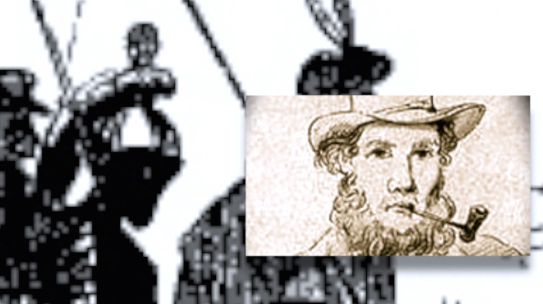
Judges – R. Davis Shepherd, Jr., Samuel B. Neil
George H. Murphy – Knight of Ivanhoe
Thomas Chapline – Hotspur
R. T. Berry Harvy Percy
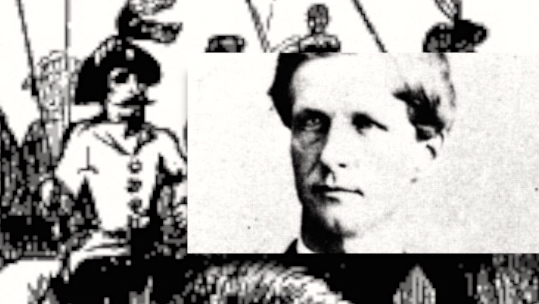
E. G. Lee – Knight of Alhambra
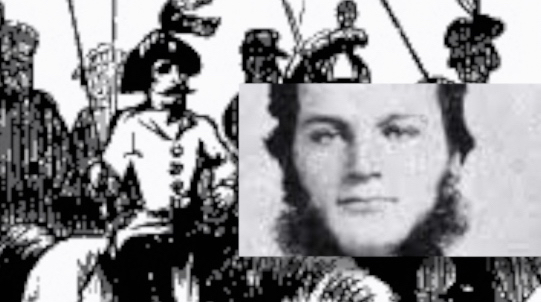
George R. Bedinger – Saladin
Joseph T. Hess – Rienzi
Daniel Morgan – Long Star
Dr. P. Grove – Knight of Woodburry
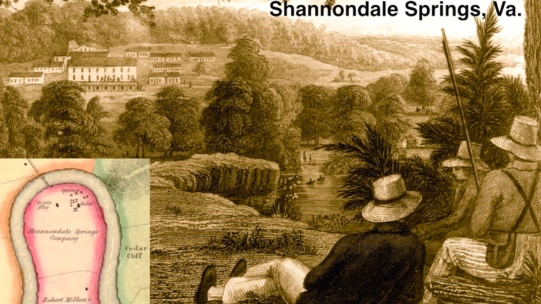
(In a previous tournament held at Shannondale Springs, the president
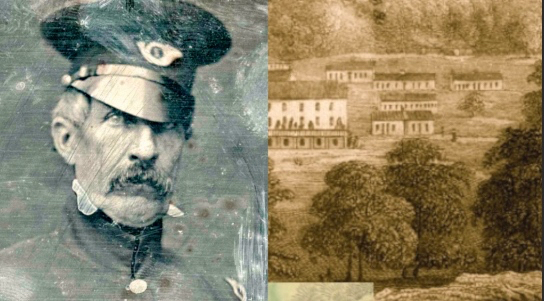
had been Col. John F. Hamtramck of Shepherdstown; R. D. Shepherd, Jr. won three consecutive contests, allowing him to award the Queen of Love and Beauty to Miss Rosa Parran of Shepherdstown). – (5).
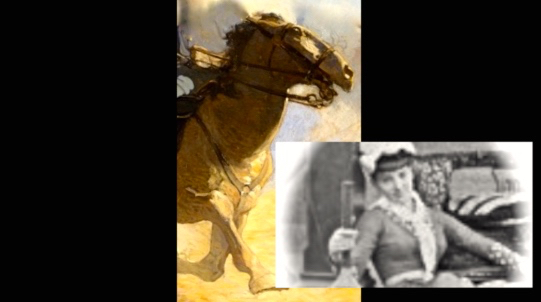
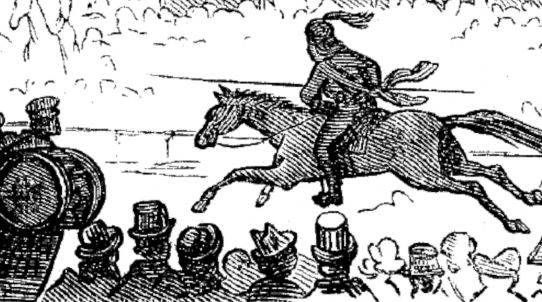
The riding at Leeland was very graceful and well done, exiting and animating, evidencing great proficiency in Equestrianism and abundantly showing that the chivalry of the Old Dominion is still in keeping with the world-wide reputation she has won in days of yore.
After three alternate charges by each Knight, R. T. Berry, George H. Murphy, and Dr. P. Grove, were declared the victors; after which the Knights were again marshaled in front of that array of beauty and love that could be with the many colors of the rainbow, when the coronation took place as follows: – R. T. Berry crowned Miss Julia J. Hays, of Sharpsburg, MD., Queen of Love and beauty; George H. Murphy selected Miss Mary Abbott of Georgetown, D.C., First Maid of Honor; Dr. P. Grove selected Miss Lillie Parran, Second Maid of Honor.
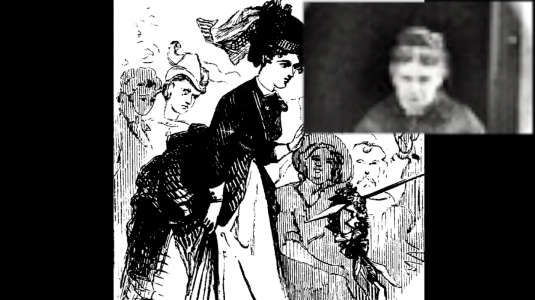
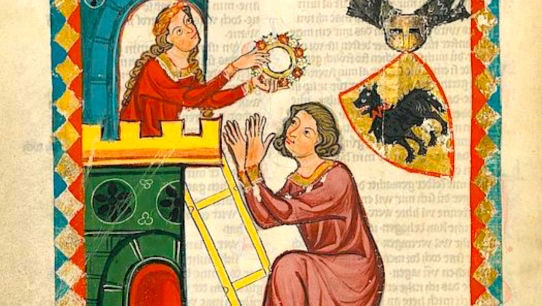
The coronation was performed by the President in a graceful and becoming manner and each was prefaced by a neat speech in the most beautiful language.
At night the exercises of the day were wound up by a magnificent Cotillion.
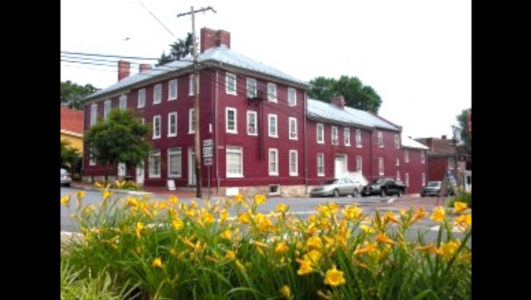
After the selection, the company repaired to the hotel where a most sumptuous feast was spread there with the flow of champagne and the
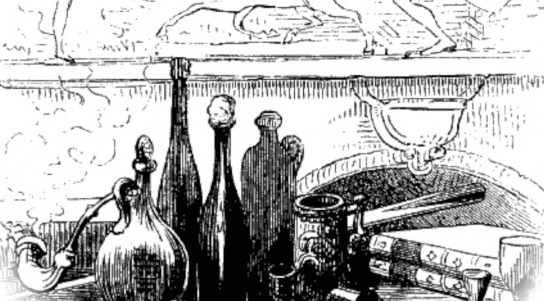
exchange of toasts consumed the afternoon. Every one then retired to their rooms to prepare for the fancy ball.
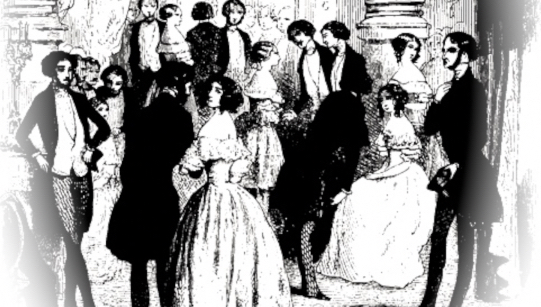
At about half past eight o’clock, the spacious ballroom was thronged with spectators awaiting entrance of the Queen and her Champion and cortege and attendants.
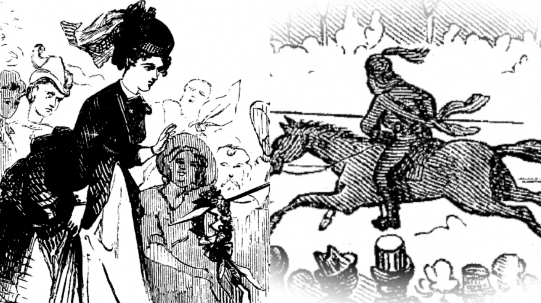
At the sound of music, the folding doors at the upper end of the room were suddenly opened, and the Queen and her Champion, richly
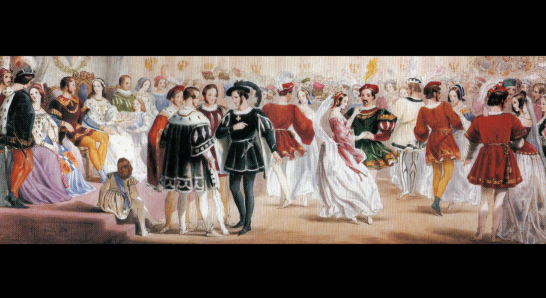
dressed in fancy costumes, the same wreath of such freshness . . . resting on his brow, appeared followed by the Knight and Maids of Honor and a long train of attendants all fancifully attired.
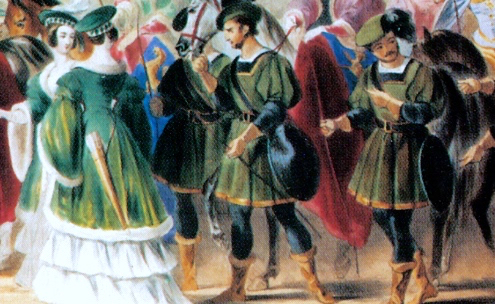
They proceeded to the far end of the room and took their stand when the crowds made their obeisance. Then the Queen and her Champion and three Knights and Maids of Honor took hands, formed and danced
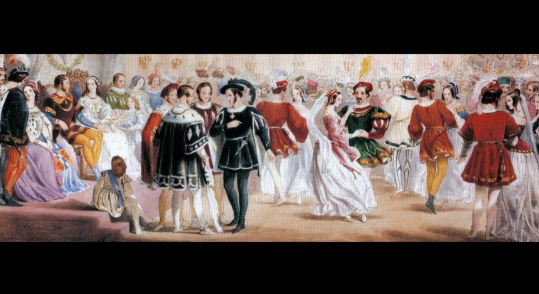
a cotillion, and the ball was opened for the evening. I have been to many balls and have seen much in this way, but have never seen one so bright and beautiful as this. The many characters represented every nation, and flitted before you in such rapid succession that it was impossible to identify. A few, however, were very conspicuous.
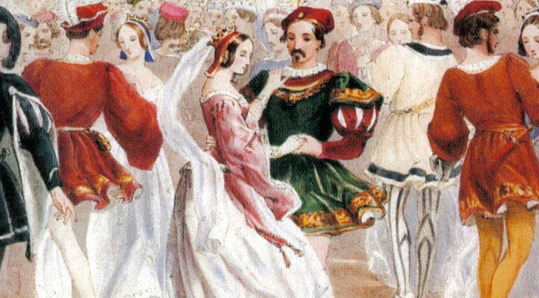
There were some others whom we noticed were magically attracting much attention, and there was one, “the gayest in the revel, the lightest in the dance,” who “Like a fairy on a festival morning, She tripped in the merry quadrille, Bright blushes her features adorning, She conquered the crowd at her will.”

The dancing was kept up until the “wee hours of morning admonished them to part. And this ended a gala day long to be remembered by all.”- (6).
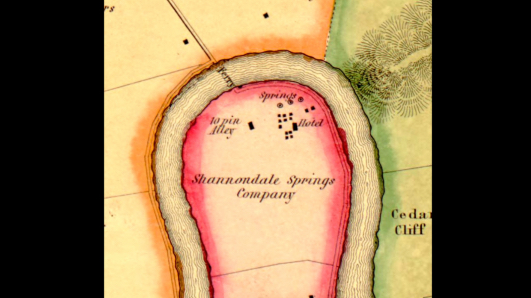
At an earlier ring tournament at Shannondale Springs in the County, an older generation prevailed.
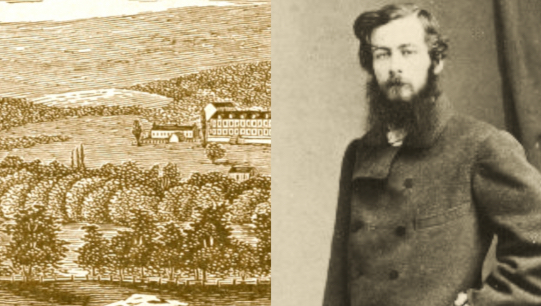
“The president of the day, one Henry Bedinger addressed them in such eloquent tones and elevated and inspired sentiments that the dullest bosum was roused to the highest daring and the true spirit of ancient chivalry was revived. . . The speech of Mr. Bedinger was most appropriate and beautiful. When he had concluded, the knights repaired to the place of starting. Then began the most splendid contention that I ever witnessed. It is impossible to give a detailed
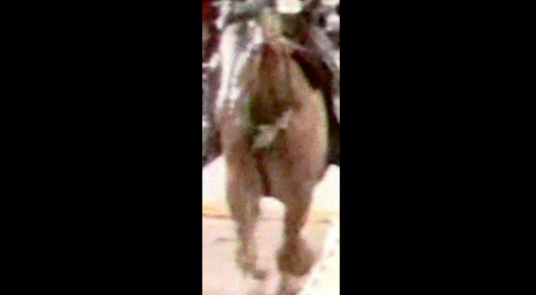
account of it, but the horses catching the spirit of the rider, flew like the wind and their flashing eyes and foaming mouths betrayed the high excitement . . .
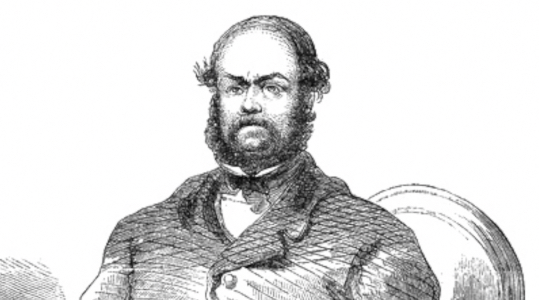
Mr. Lewis Washington, as the English hunter of the 15th century, so superbly he filled the character so to very life, and Mr. John Pendleton Kennedy in the court dress of Louis the 14th looked remarkably striking and handsome.” – (7).
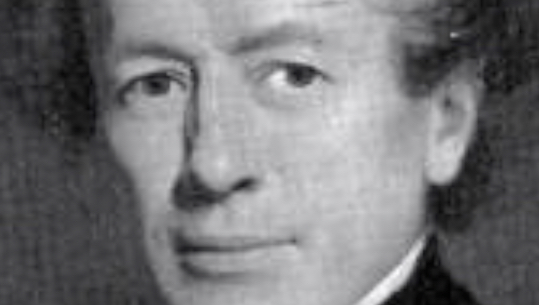
Main sources:
The Shepherdstown Register, August 8, 1857.
Crayon, Porte (Strother, D. H.). “The Mountains – X.” Harper’s New Monthly Magazine. Volume 51. Issue: 304 (September, 1875). pp. 475-486. Print.
The Baltimore Sun, September 1, 1849.
The Baltimore Herald, August 2, 1848,
(Thornton Perry collection, Virginia State Library).
Image Credits:
Col.John Francis Hamtramck http://www.wvculture.org/history/thisdayinwvhistory/1118.html
The Virginia Reel https://reallifeartist.wordpress.com/
19th Century Social Dance
http://memory.loc.gov/ammem/dihtml/diessay6.html
Howe’s Complete Ball-room Handbook
http://www.kickery.com/civil_war_american/
An illustration of three American couples performing a Country-dance in the Longways Minor set, c. 1820.
The Granger Collection, New York, ID: 0048338.
http://testaae.greenwood.com
War – Newell Convers Wyeth (detail of horse)
http://www.militar.org.ua/foro/la-pintura-y-la-guerra-t18709-7455.html
By Wing-Chi Poon [CC-BY-SA-3.0 (http://creativecommons.org/licenses/by-sa/3.0)], via Wikimedia Commons
https://upload.wikimedia.org/wikipedia/commons/3/33/Sanddunes_Sunrise.jpg

NEXT: Chapter 2. https://civilwarscholars.com/american-civil-war/thy-will-be-done-chapter-2-working-jefferson-countys-peaceful-fertile-lands-by-jim-surkamp/









